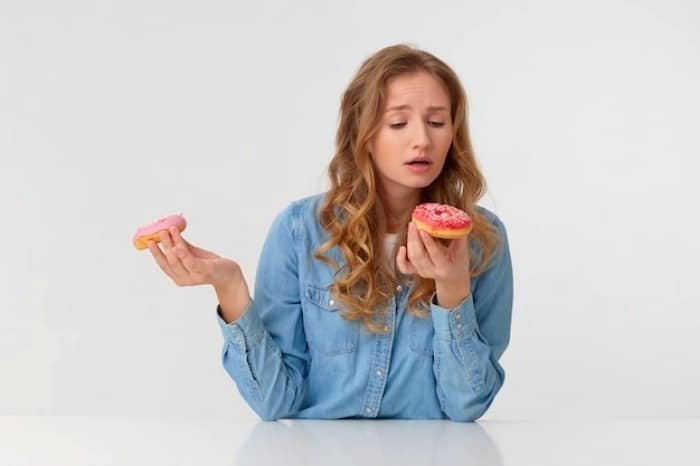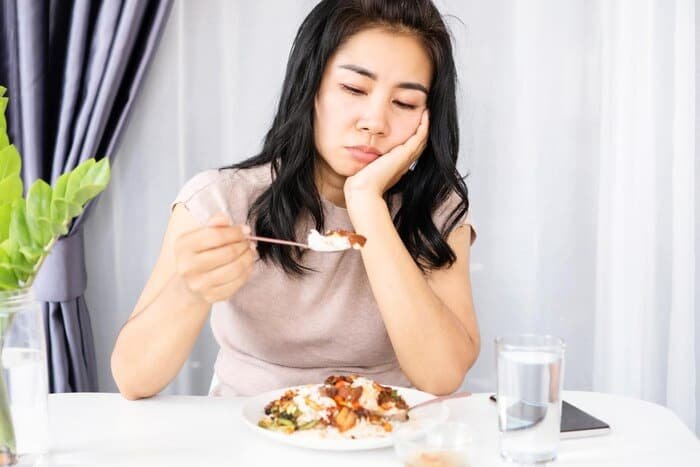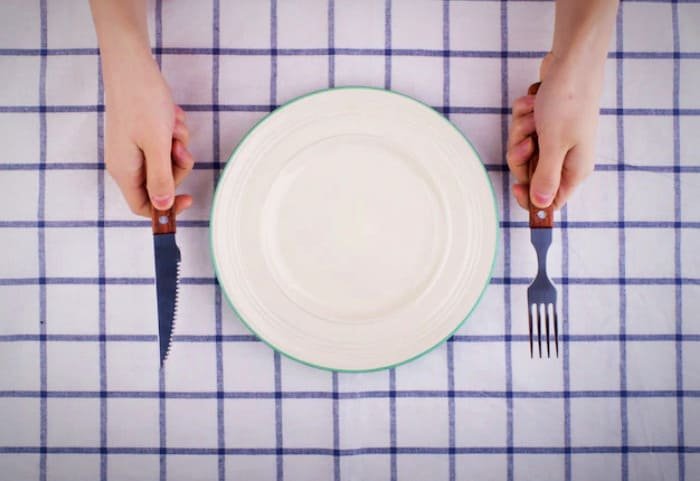Reasons and Solutions for Regret and Guilt After Eating
For some individuals, the feeling of guilt after eating exists. Understanding where this feeling comes from, why it occurs, and how to cope with it requires gaining information. In essence, guilt arises because you feel you’ve done something wrong or harmed yourself or someone else. Therefore, the feeling of guilt and regret after a meal is a sense that you have consumed the wrong food or eaten at the wrong time.
When do we feel guilt after eating?
Throughout the day, we may feel guilt due to various issues, and this can sometimes stem from the food we consume. The most common causes may include overeating or consuming specific foods or negative feelings that lead us to believe we will gain weight afterward. Additionally, this can be triggered by physiological disorders, which include the most common issues addressed in this section ofSelMagzwe will explain to you.

Bulimia orBinge Eating Disorder
This eating disorder involves abnormal and excessive hunger and often leads to binge eating, yet at the same time is accompanied by feelings of regret and guilt, which may result in issues such as vomiting, using laxatives, or excessive exercise. Binge eating refers to consuming large amounts of food in a short time. In this situation, the individual feels shame and embarrassment about their actions and promises themselves to never repeat it, but this cycle occurs again. This disorder may lead to the following complications:
- Dehydration and dryness
- Severe tooth decay
- AnxietyandDepression
- Absence of menstruation or self-harm or using recreational drugs
- Heart and digestive problems
Anorexia orRestrictive EatingNervous
Additionally, binge eating may lead a person to try to compensate suddenly and engage in very harmful behaviors to lose calories, known as anorexia or restrictive eating. Anorexia is actually a type of psychotic disorder where an individual severely limits their calorie intake and burns a lot of energy through exercise, resulting in feelings of guilt,Obsessivenessand neglect. Its complications and difficulties may include:
- Heart arrhythmias
- Amenorrhea or absence of menstruation
- Malnutrition
- High blood pressure
- Hair loss
- Nail atrophy
- Attention or concentration disorders
- Changes in pain perception

Binge Eating Disorder
This disorder occurs when an individual loses control and eats more than normal, consumes unhealthy foods, and does not burn off calories. In such cases, feelings of guilt, shame, and regret may overwhelm them. This hunger can respond to situations such asStress; distress or emotional imbalance.
In fact, this type of hunger occurs in response to emotional needs and various psychological conditions that may appear suddenly yet persistently and cause problems, including:
- Depression
- Insomnia
- Weight gain
- Digestive issues
- Joint pain
- Changes in menstrual cycle
How to Cope with Regret and Discomfort After Eating?
In such cases, you should seek help from a professional and explain your condition. However, the following may be helpful:
Minding Your Eating
Make sure to examine whyyou have negative feelingsafter eating. Additionally, be fully aware of all the feelings you have while eating to identify the problem more quickly.
Assessing Emotional or Physiological Hunger
First, you need to understand if this hunger arises from your body’s physiology or from your feelings and emotions. If you become hungry due to emotional disorders, there may be an underlying issue to explore.

Eating for Energy
We suggest you eat only when you’re creating energy in your body. If you still feel guilty at such times, definitely consult a specialist or therapist to prevent more serious disorders from arising.







